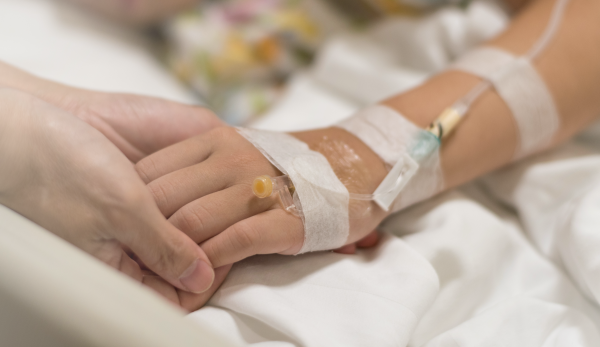Nine cancer patient organisations have united in a new campaign designed as a response to the negative impact of the COVID-19 pandemic on cancer diagnostic and surgical procedures.
The ‘New Normal. Same Cancer’ campaign is encouraging Australians to ensure all new symptoms are checked without delay and that people living with pre-existing conditions maintain contact with their healthcare providers.
The nine groups are Bowel Cancer Australia, GI Cancer Institute, Leukaemia Foundation, Lung Foundation Australia, Lymphoma Australia, Pink Hope, Prostate Cancer Foundation, Ovarian Cancer Australia and Rare Cancers Australia.
The groups say Australia has 'taken its foot off the pedal' when it comes to cancer as a result of the pandemic. The risk is an increase in cancer-related deaths.
"The message of this new campaign is simple: Don’t wait. Contact your doctor. Get tested," said the groups in a statement. "A simple message to remind Australians to act on any change they have experienced in themselves – however seemingly minor; symptoms such as unexplained weight loss, unexplained ache or pain, or an unusual lump or swelling, should not be ignored or brushed off."
According to the groups, the evidence shows the pandemic's direct impact on cancer services and delivery.
In the first nine months of 2020, there were 17,509 fewer diagnostic procedures for breast cancer than the same period in 2019.
It was the same situation for other cancers. with 78,048 fewer diagnostic procedures for bowel cancer, 961 fewer for lung cancer, 52,544 fewer for prostate cancer and 34,268 fewer non-surgical and surgical procedures for skin cancers other than melanoma and melanoma skin cancers.
According to the CEO of Lymphoma Australia, Sharon Winton, "We have to learn to live with COVID-19 while managing our other health issues and challenges.
"The campaign will highlight what the figures show is a real problem. We hope they are earth-shattering enough so that more people understand they cannot just leave these other things behind."
Ms Winton said that telehealth has been very helpful during the pandemic, particularly for people living in rural and regional areas, but that "we have to be mindful it is not so easy to have your skin checked or a lump checked on the phone or virtually."
"There is a new reality and we have to move forward with that," she added.
The groups said the pandemic may have created a 'new normal' with social distancing, face masks and regular hand sanitising. Yet the threat of cancer remains unchanged.
Lung Foundation Australia CEO Mark Brooke said time was of the essence when it came to “finding” those Australians living with cancer.
“Early diagnosis is critical to receiving best-practice care and treatment,” he said.
“Symptoms of cancer can be vague, and people often put it down to signs of ageing or a lack of fitness. For any cancer, early diagnosis is critical to receiving best-practice care and treatment. If you’re experiencing any new, persistent or unexplained symptoms, don't delay talking to your GP. And if you have a diagnosis of cancer, it’s really important you continue your regular treatment and care.”
Mr Brooke added, “We cannot stress enough that while we live in a new normal in many respects, the threat of cancer remains unchanged; and the same level of vigilance on the early warning signs, and action on diagnosis are required.”
Cancer Australia said it supported the new campaign's important message. “New normal, same cancer is a vital message – because as we know, cancer won’t wait,” said Professor Dorothy Keefe, CEO Cancer Australia.
“Last year, Cancer Australia analysed evidence that showed a substantial reduction in cancer-related services and procedures that occurred from March through until September 2020. As we know, any potential delays in diagnoses and treatment in response to these reductions may lead to more advanced stages of cancer progression and poorer patient outcomes, so we encourage people to see their doctors as usual. It is important to remember most symptoms are due to something less serious than cancer, but if it is cancer, the earlier it is found, the better.”
